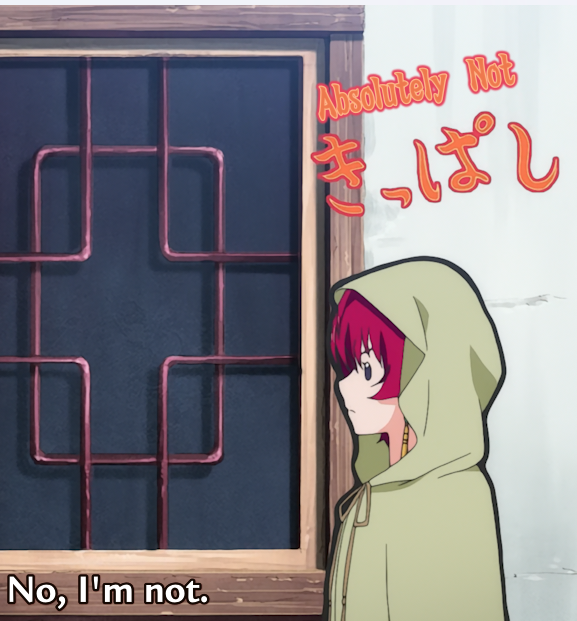In Akatsuki no Yona (a shojo series), H-kun is part of Y-chan's group (protecting her as a bodyguard of sorts). J-kun wants H-kun to join his crew.
Y-chan says "I want to meet with your captain." J-kun responds "なぜ? H-kunをくれるの?" (Why? Are you giving us H-kun?). And Y-chan responds "ううん。あげない。" (No, I'm not), and on top of her, the extra characters "きっぱし" are added on, which the subs translate as "Absolutely Not".
My question is: why is kippashi translated as "absolutely not"? The only definition I see for it is "the remains of something after being cut up; fragments". Is this some kind of slang like "his hopes were left in shambles"? Or is there another definition I'm not finding?

